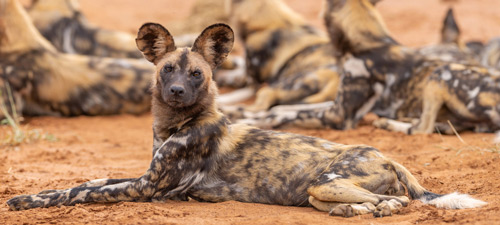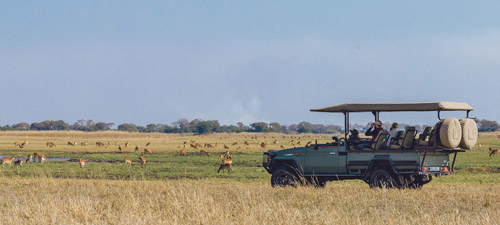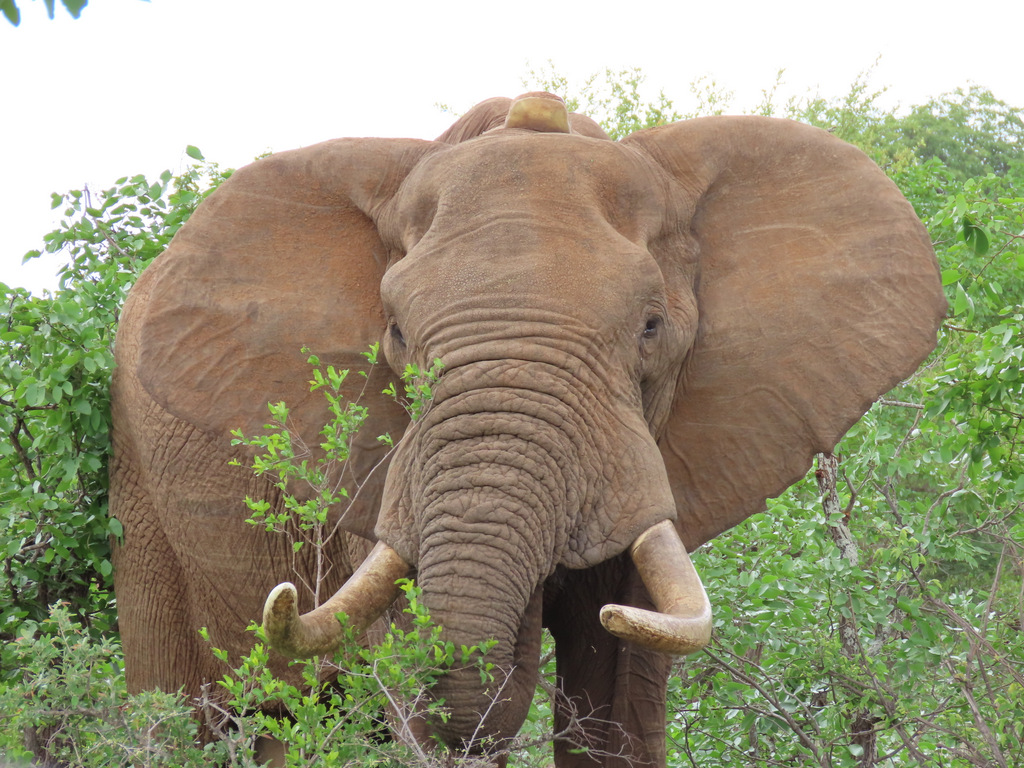
These are the stories of two elephants who display enormous tenacity and will to survive, despite significant obstacles. As told by Dr. Michelle Henley – Elephants Alive Director, Co-founder and Principal Researcher.
MATAMBU
Most of the staff and residents of the Associated Private Nature Reserves – Klaserie, Umbabat, Timbavati, Balule & Thornybush (APNR) in the Greater Kruger – have come to know Matambu. He is a true gentle giant amongst elephants, in every sense of the word, often bestowing on us the great honour of contact rumbling when he senses us. This could be because we have regularly visited him since first sighting him on 16 June 2005, and so he has come to recognise the sound of our research vehicle and the scent of its passengers. You see, Matambu is almost totally blind. During our recent annual aerial census, Matambu was seen walking closely on the heels of a younger bull, tracking him as he weaved his way through the bushveld. We have often found him in the company of Whispers, who would protectively charge at us when we immobilise his ailing companion – surely a sign of loyalty and concern for his safety.
In May of this year, we thought we were going to lose Matambu after he suffered a severe infection near the base of his tail and his underparts, probably after being attacked by another bull. We turned to Wildlifevets (Drs. Ben Muller and Joel Alves) three times to treat Matambu’s wounds.
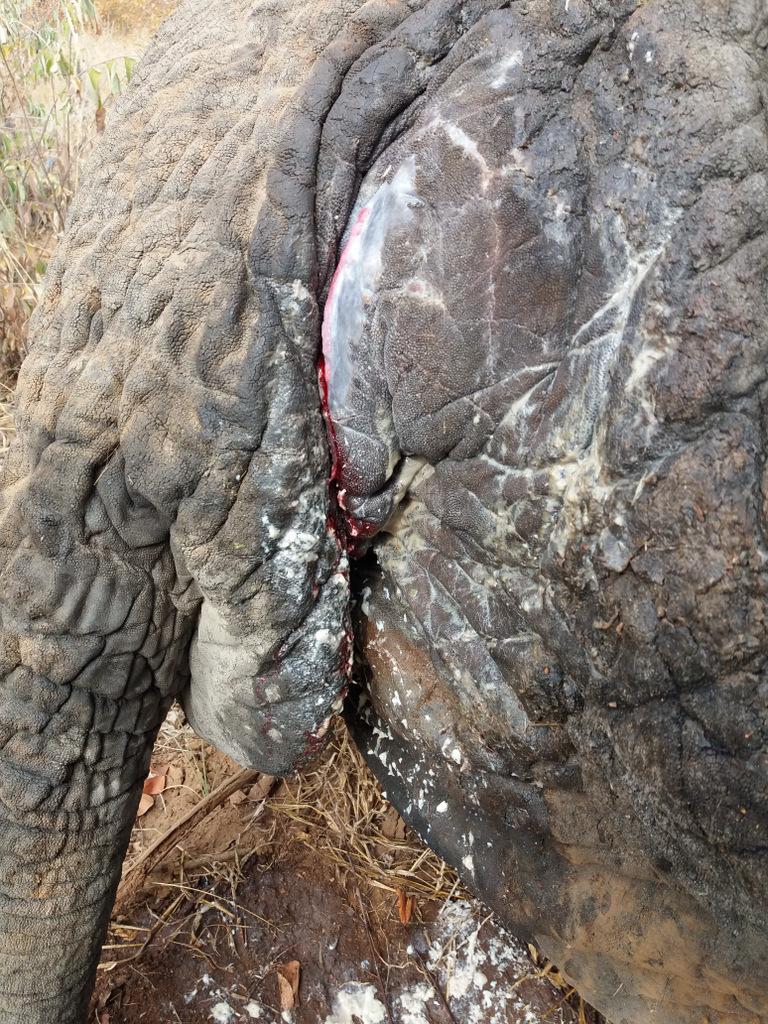
A deep sadness hung over our team at Elephants Alive when we were told during the last treatment that we needed to let him pass on. But, as we mentally prepared ourselves, Matambu had other plans and a clear will to live, and slowly but surely his condition improved. Almost six months after his injury he is still thin and has a less severe infection, but the flushing green grass will hopefully give him the kick-start he needs to boost his immune system and fight off the infection. We are delighted to be approaching the festive season and the New Year with this special elephant. Keep fighting Matambu, as we need your continued existence to bring us added joy!

RHANDZEKILE
Rhandzekile, meaning ‘loved’ in Shangaan, was first sighted in 2009 in the Umbabat Private Nature Reserve as a young sub-adult cow. Through the years since then, people who see her have expressed shock and awe that she has kept going. Rhandzekile has a large hole below her forehead, through which she breathes. Our vets suspect that her handicap is congenital. She appears on and off in the APNR and recently was seen lactating, with a calf in tow.
The hole in her forehead was recently oozing puss, and so we again called Wildlifevets to the rescue, who examined her and administered booster injections. Miraculously, only 2% of her breathing is through her trunk – the rest is via the hole in her forehead, with much audible sucking and blowing. Subsequent to this treatment she moved out of Balule Private Nature Reserve all the way down to Skukuza over the period of a month, clearly showing us that her handicap does not hold her back in anyway.
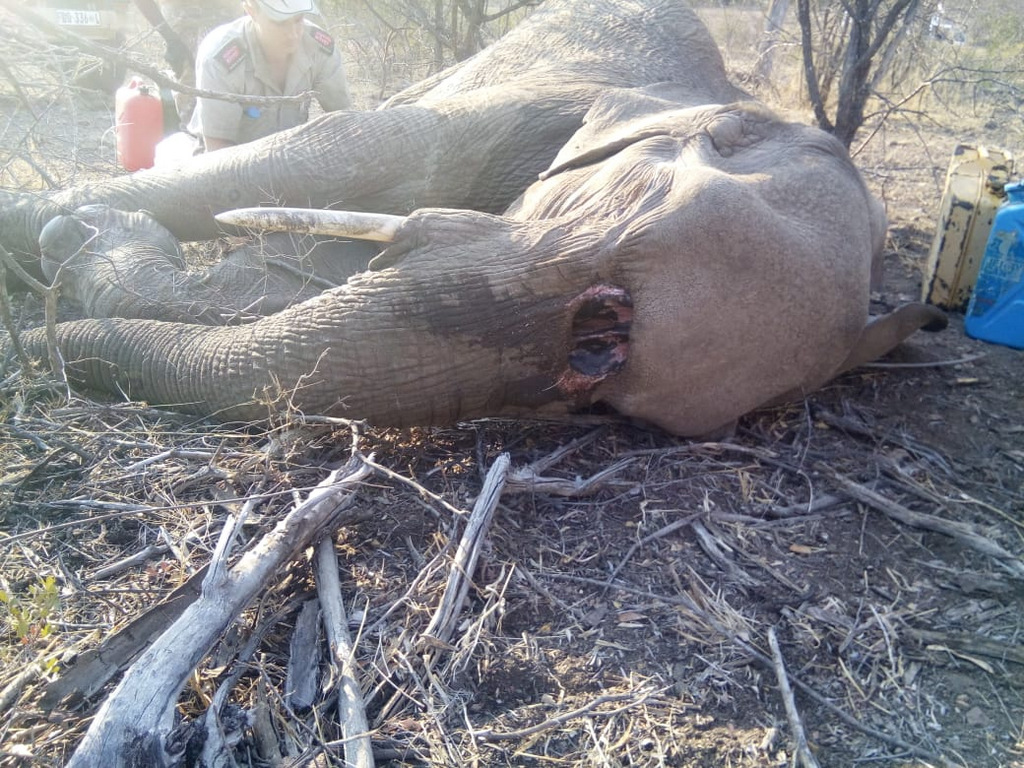
Rhandzekile has the company of her family herd, and we wonder who in that herd helps her to drink by squirting water into her mouth, as she will not be able to suck water very effectively?
So it is in the lives of elephants – they care for each other – and sometimes we are privileged enough to catch a glimpse into their world of absolute bonds and friendships that last a lifetime and allow handicapped individuals to live long and fruitful lives.
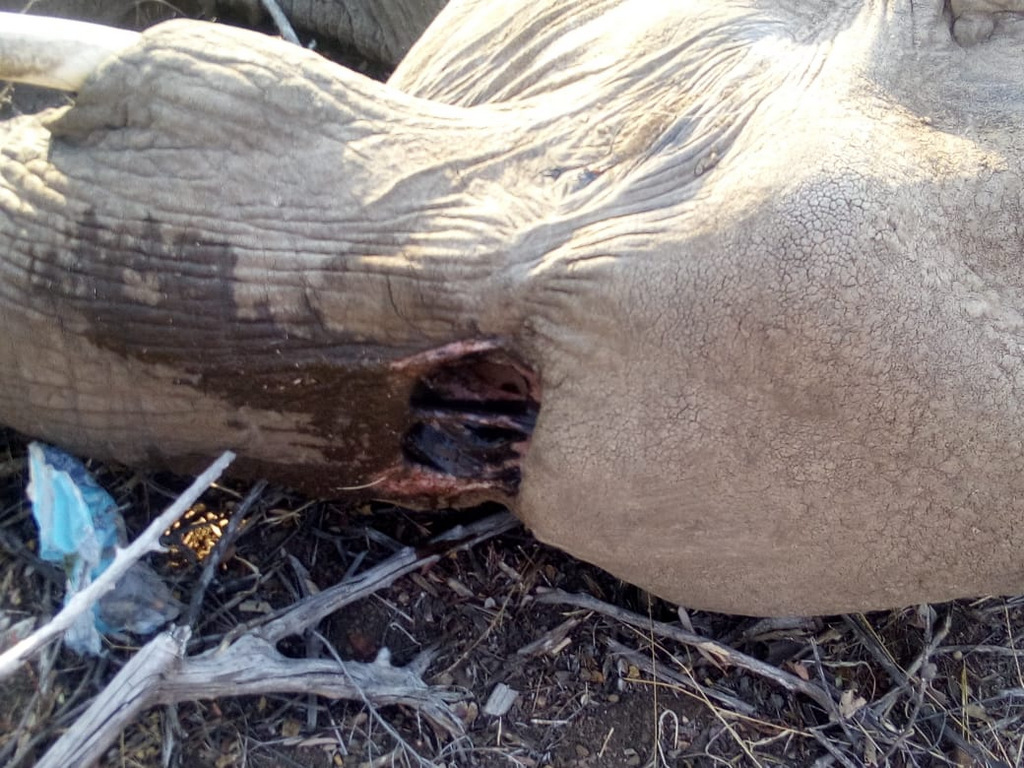
Thank you to all the landowners of the APNR for reporting sightings of this cow. We would like to monitor her more closely and fit a collar so your sightings are valuable. Thank you to the wardens and especially to Ian Nowak (general manager of Balule) for helping with the location of this cow for examination.
To comment on this story: Login (or sign up) to our app here - it's a troll-free safe place 🙂.![]()



